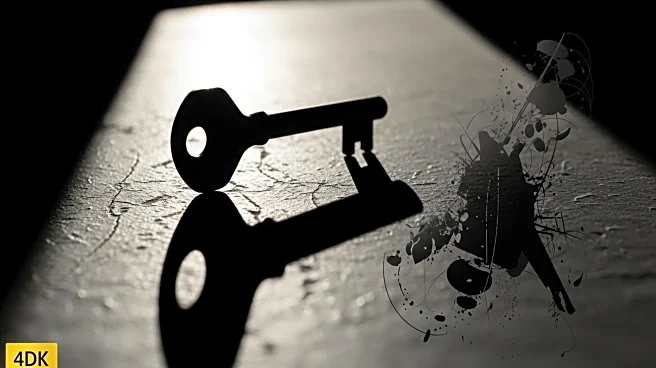What's Happening?
Hamas has released a video showing two Israeli hostages, Guy Gilboa-Dalal and Alon Ohel, who were seized during a cross-border attack in October 2023. The video, dated late August, depicts Gilboa-Dalal in Gaza City, pleading for his release. This marks the first appearance of Ohel since his abduction 700 days ago. The release of the video comes amid heightened tensions, with Israeli Prime Minister Benjamin Netanyahu reiterating that the war could end if Hamas releases all hostages. Currently, 48 hostages are held by Hamas, with 20 believed to be alive. The Hostages and Missing Families Forum has urged the Israeli government to return to negotiations, emphasizing the need for a comprehensive deal to secure the hostages' release.
Why It's Important?
The release of the video underscores the ongoing humanitarian crisis and the complex geopolitical dynamics in the region. The situation affects not only the hostages and their families but also broader international relations and regional stability. The Israeli government's stance on the hostages' release is pivotal, as it influences military strategies and diplomatic negotiations. The involvement of mediators like Qatar and Egypt highlights the international community's role in seeking resolutions. The hostages' plight remains a critical issue, impacting public sentiment and political discourse in Israel and beyond.
What's Next?
The Israeli government faces pressure to resume negotiations for a ceasefire deal that could lead to the hostages' release. Defense Minister Israel Katz has indicated that military operations will intensify until Hamas meets Israel's conditions. Meanwhile, opposition leader Yair Lapid has called for renewed talks. The Hostages and Missing Families Forum continues to advocate for immediate action, organizing rallies to press the government. The situation remains fluid, with potential diplomatic and military developments expected in the coming weeks.
Beyond the Headlines
The hostage crisis highlights ethical and humanitarian concerns, raising questions about the treatment of captives and the use of propaganda in conflict. The situation also reflects broader issues of international law and human rights, as well as the challenges of negotiating peace in a region marked by longstanding tensions. The involvement of regional mediators suggests potential shifts in alliances and diplomatic strategies, which could have long-term implications for peace efforts.










